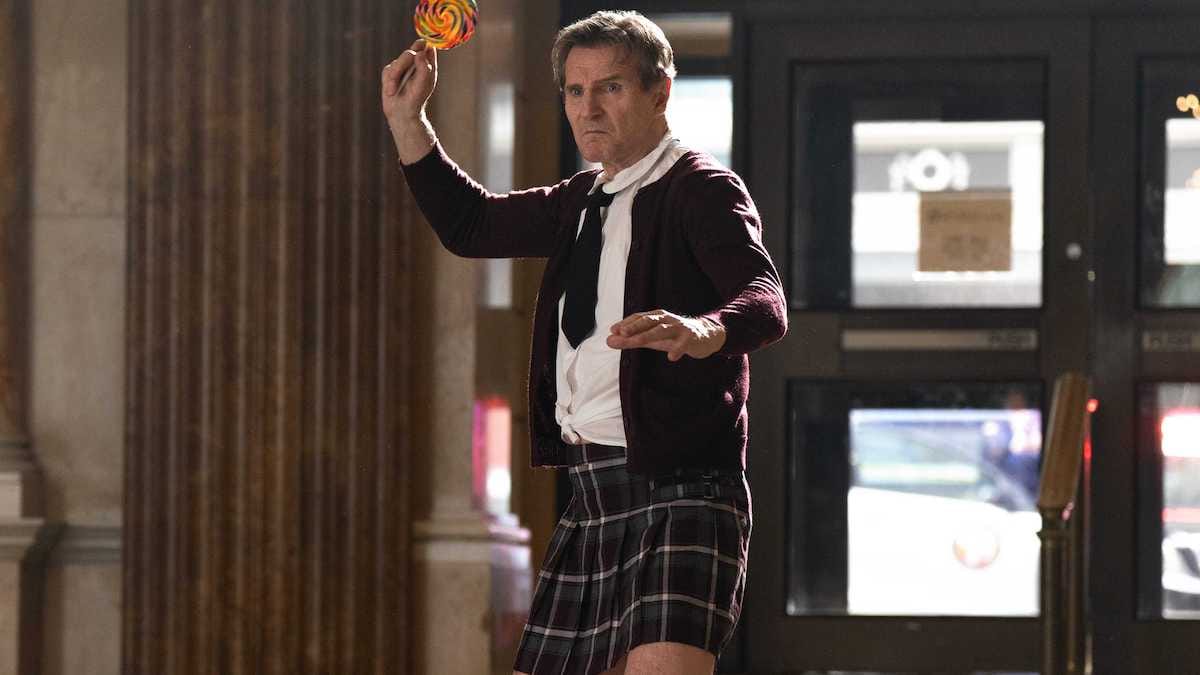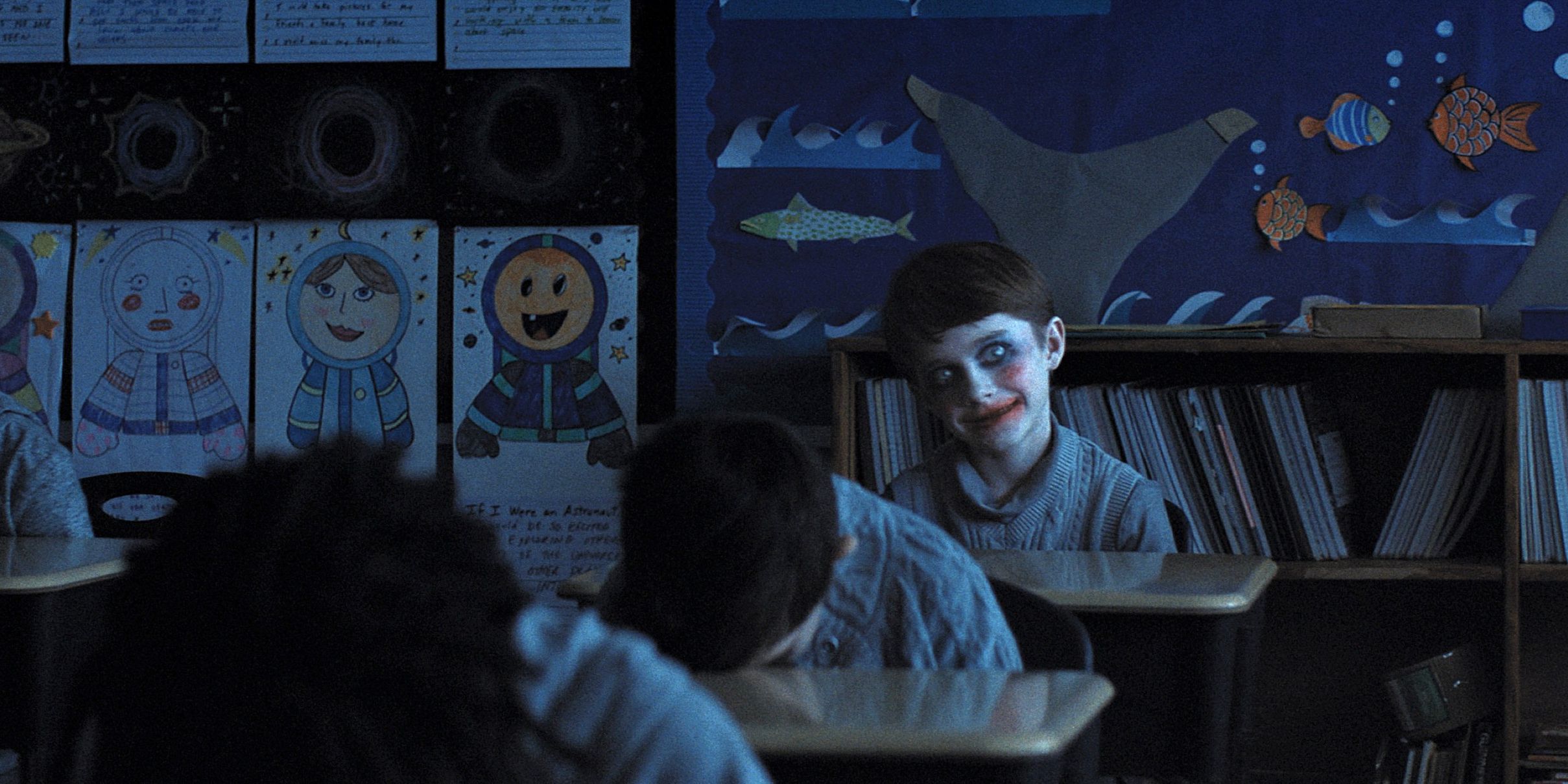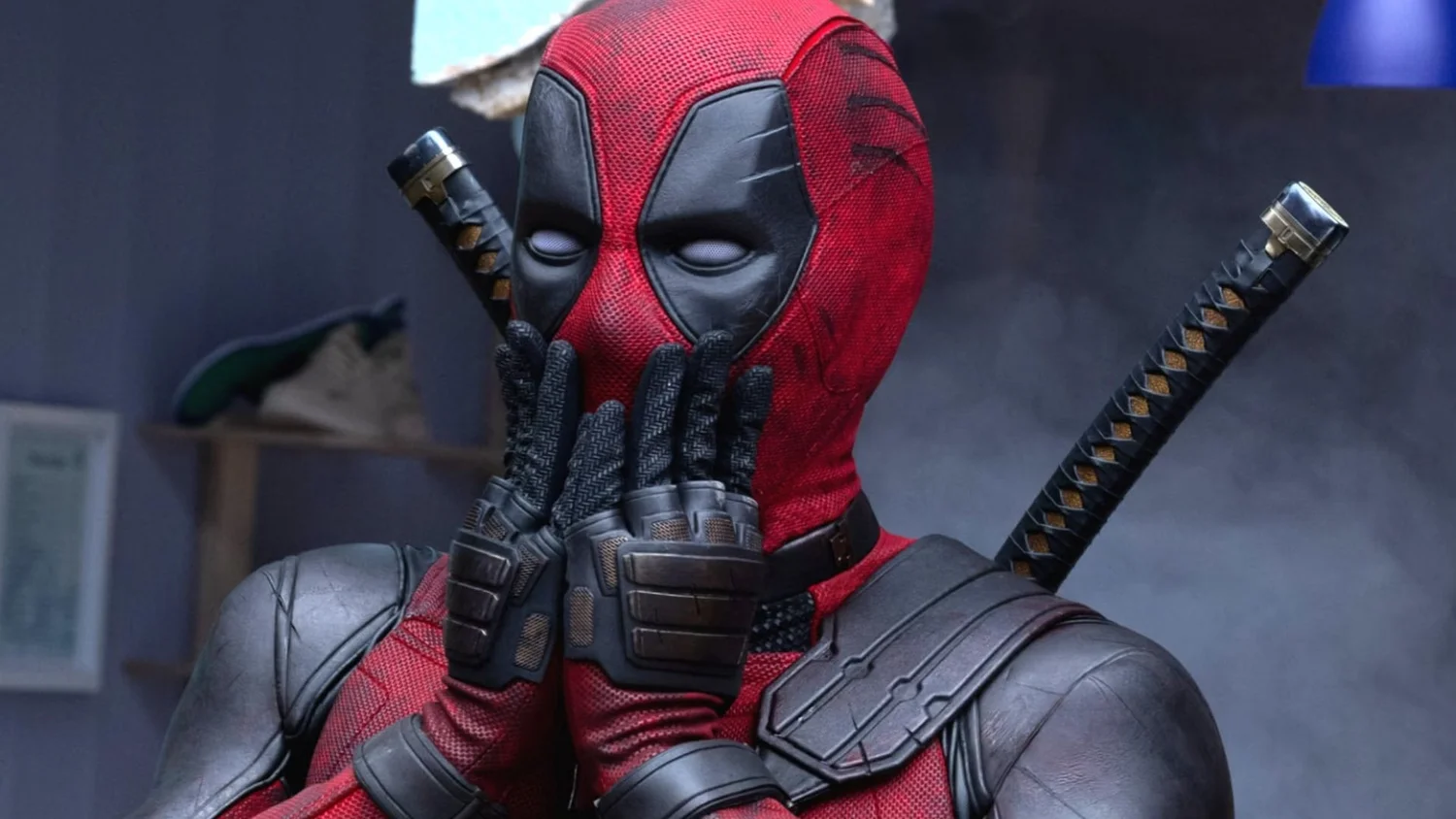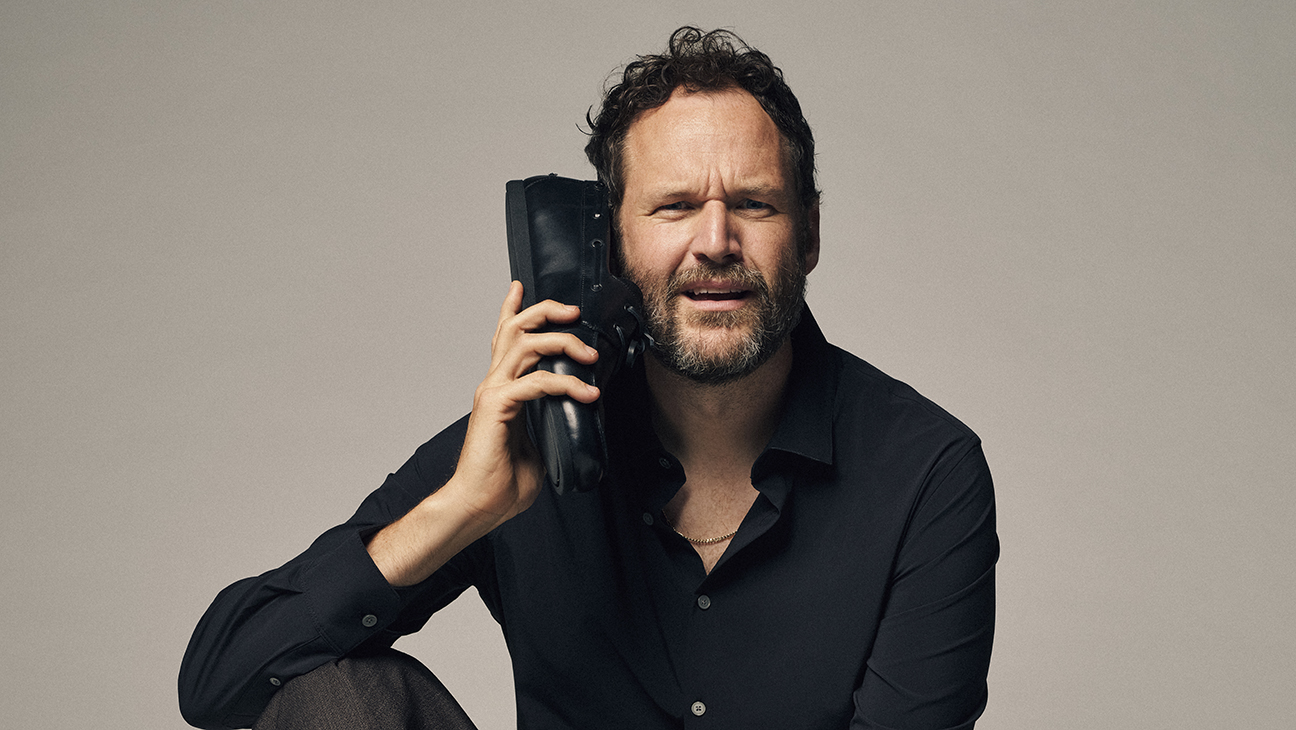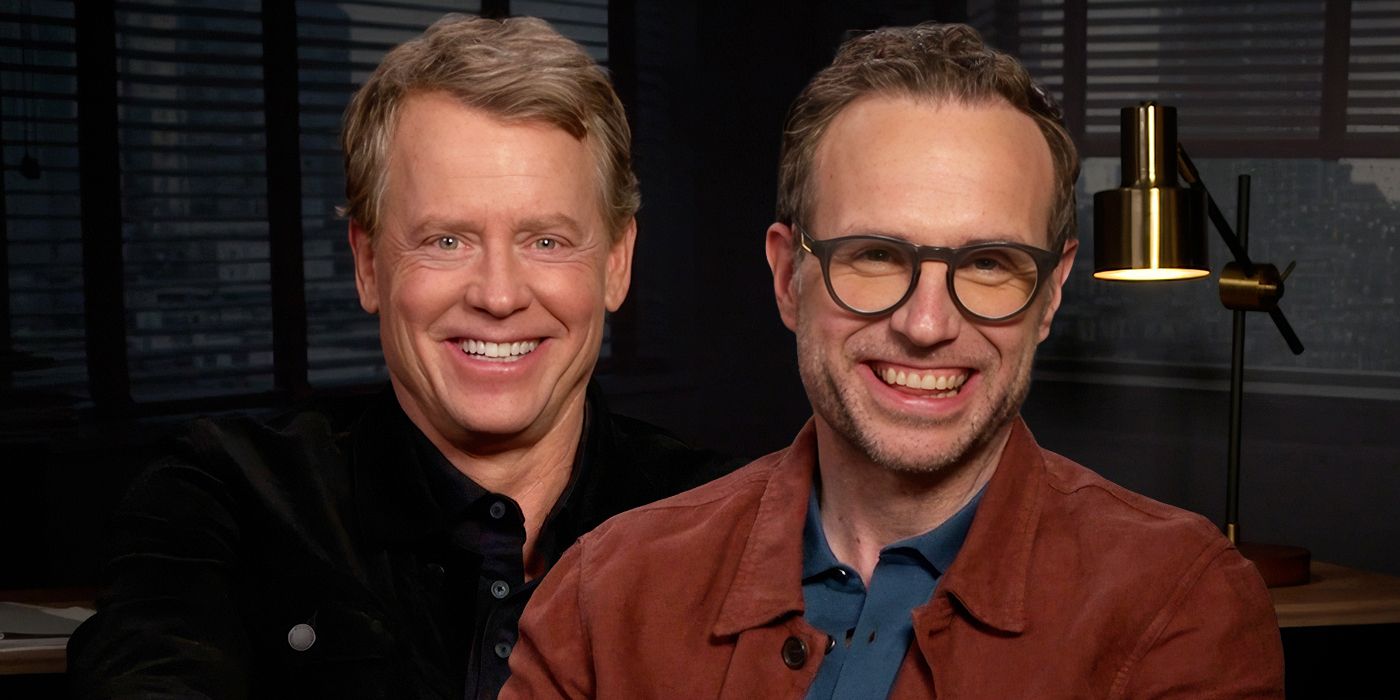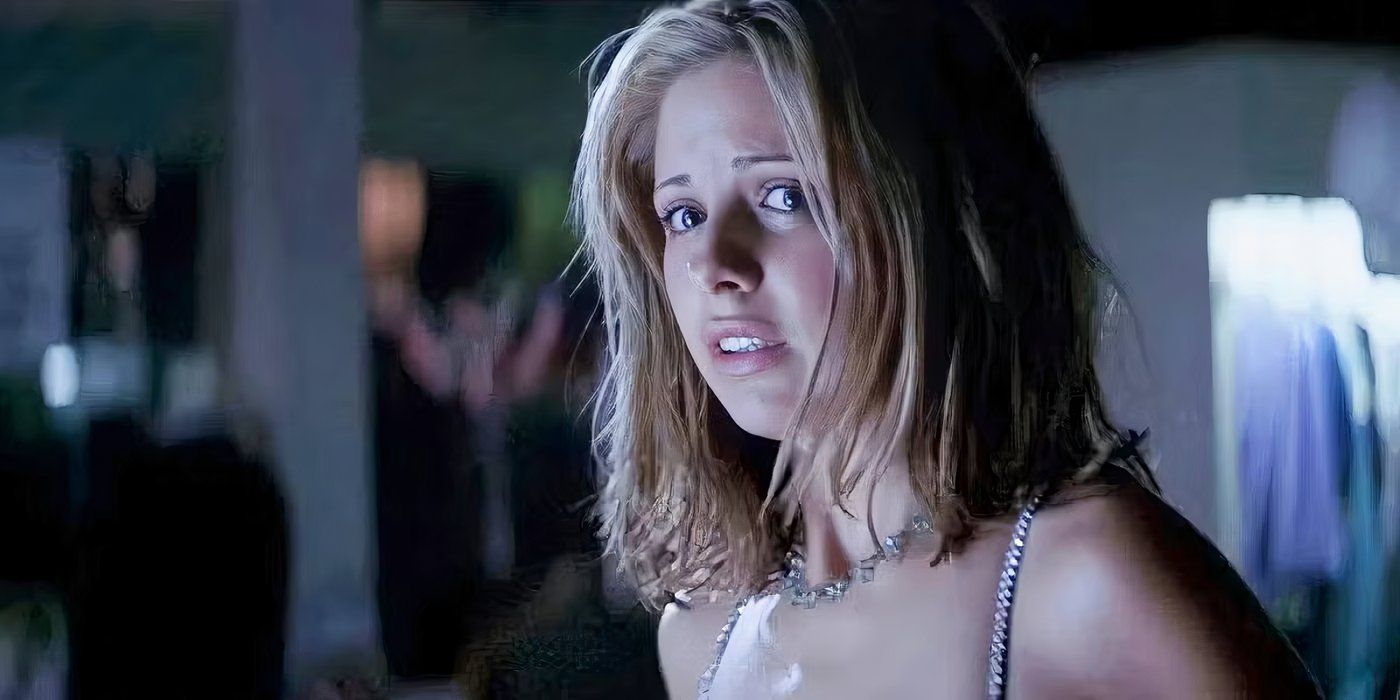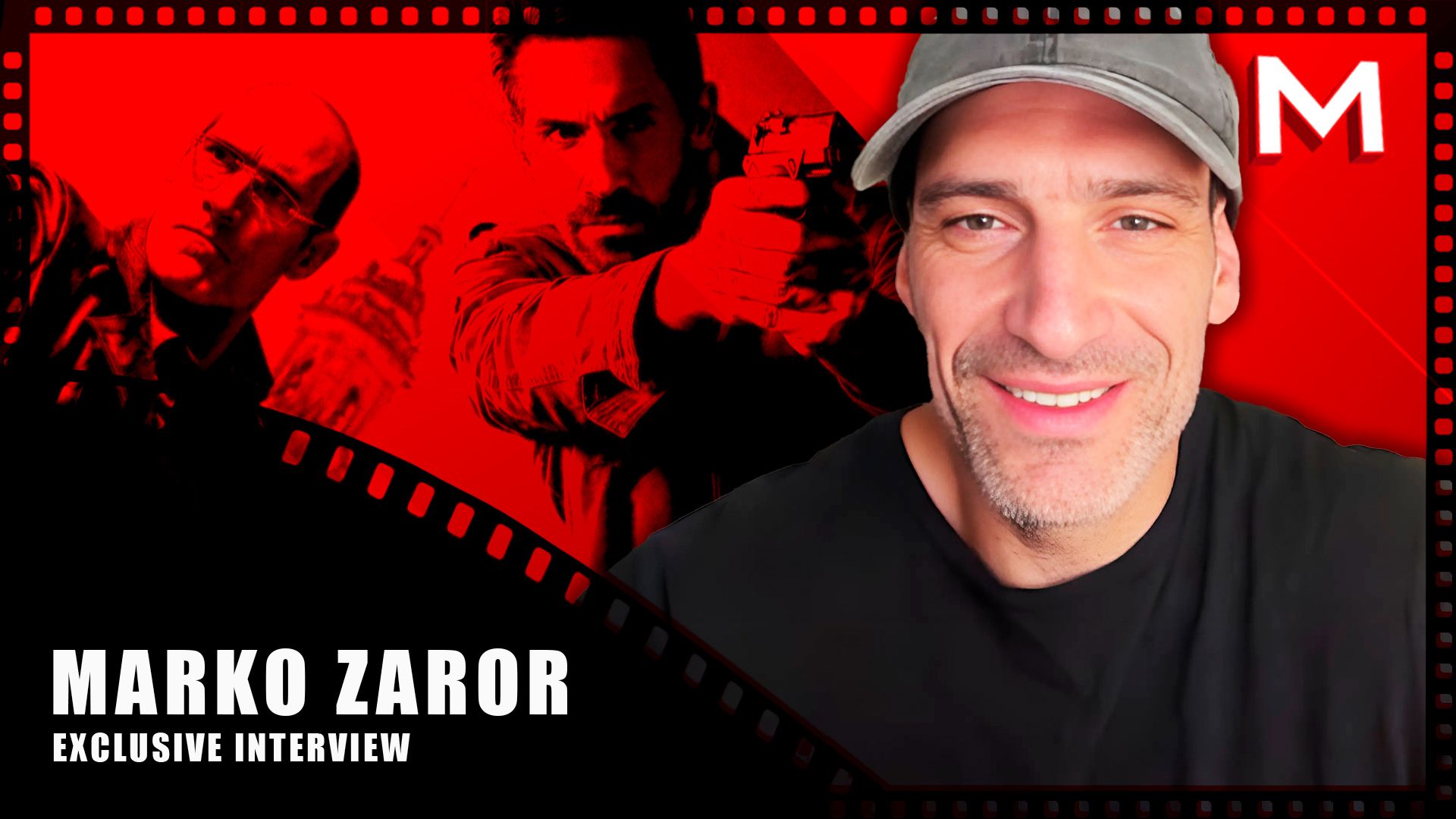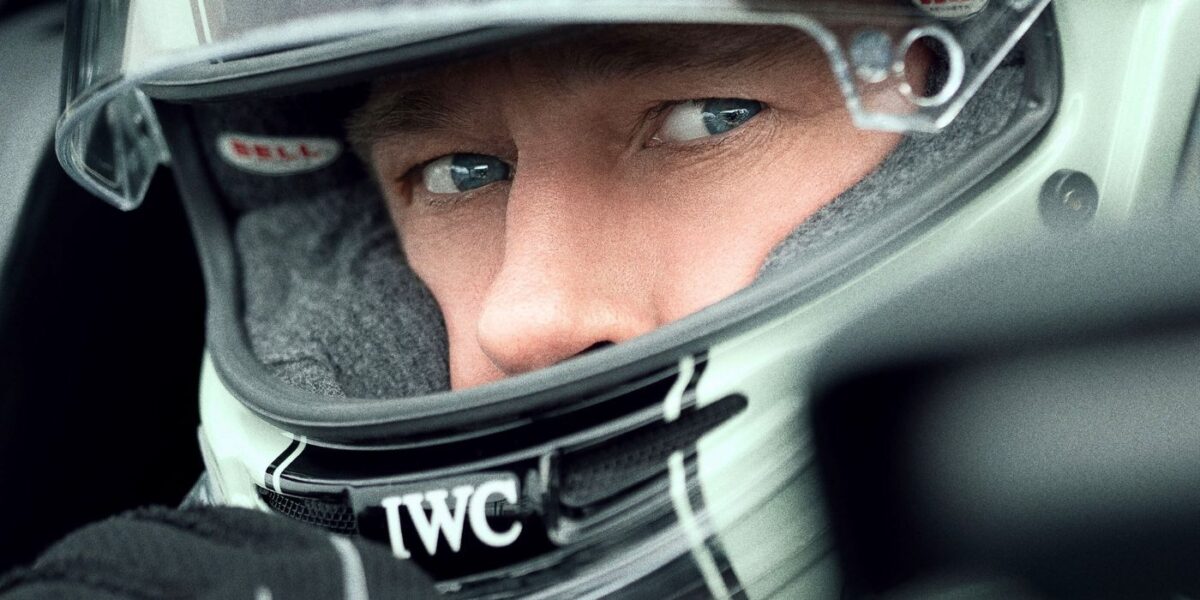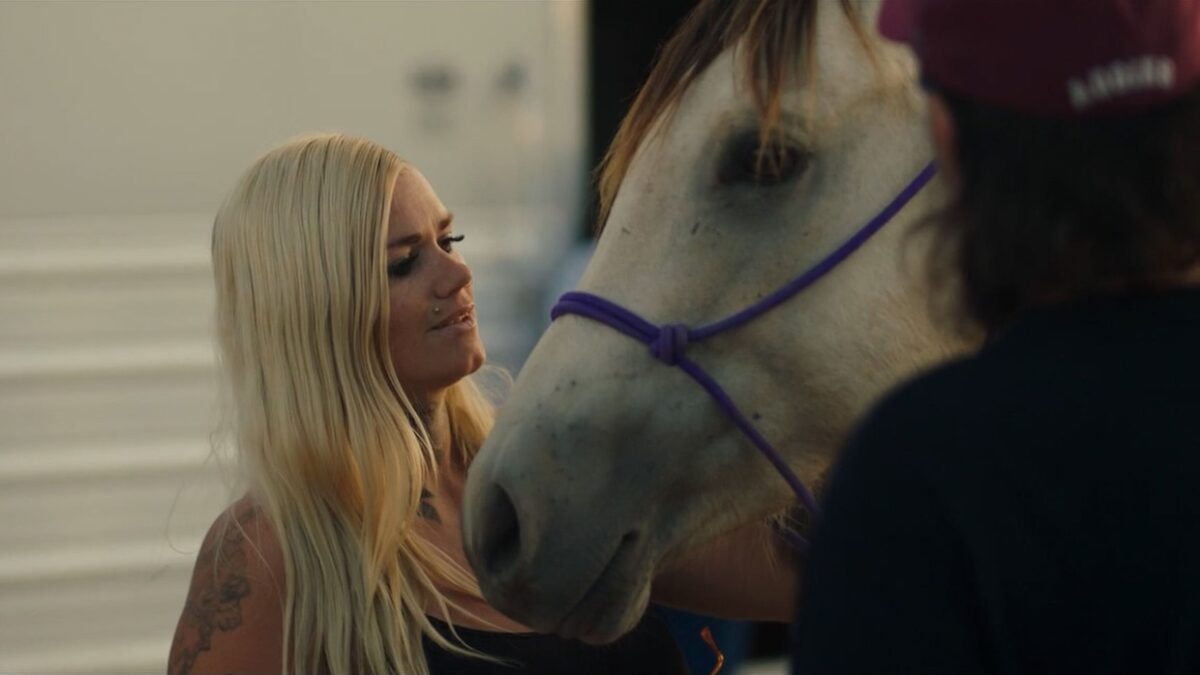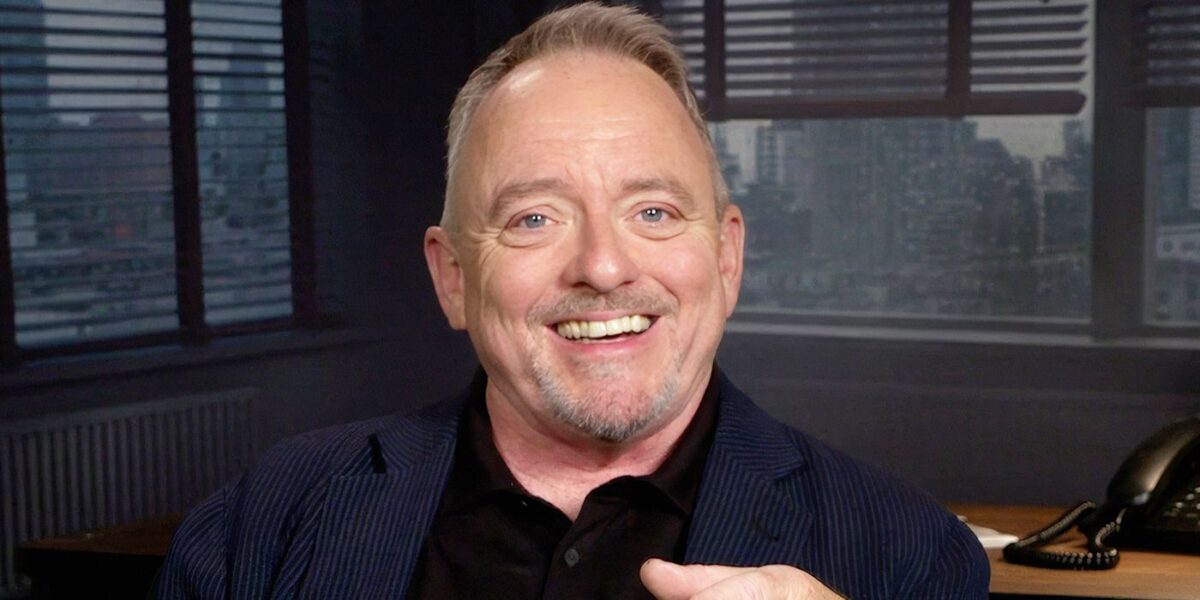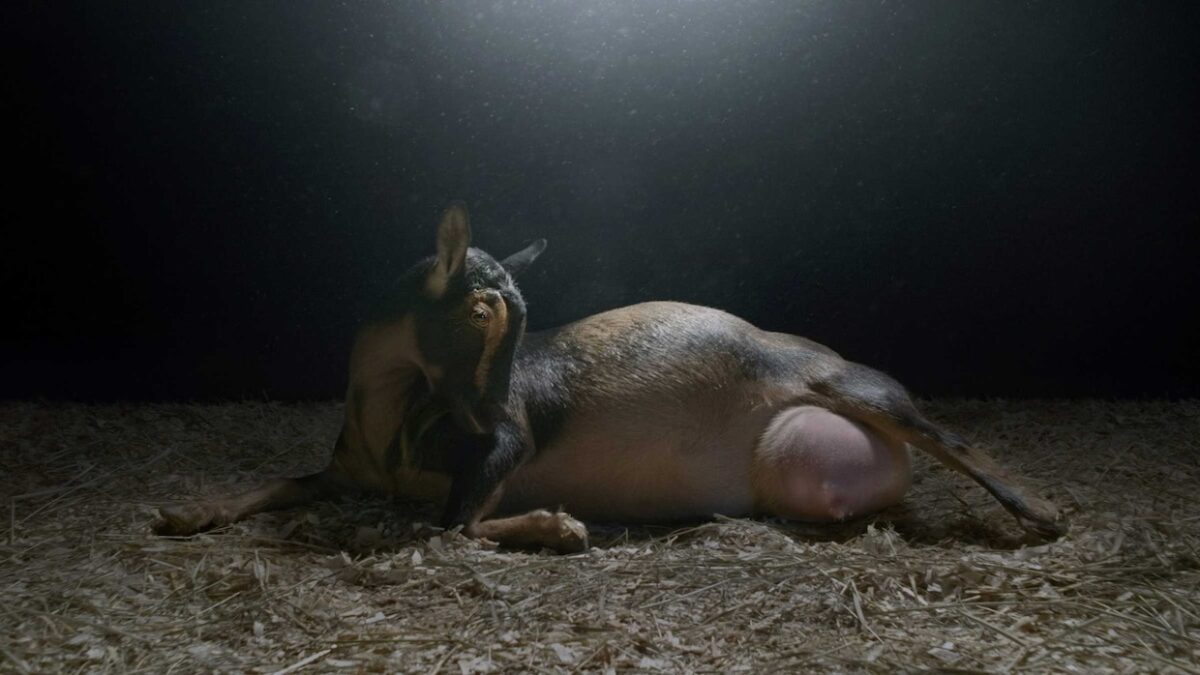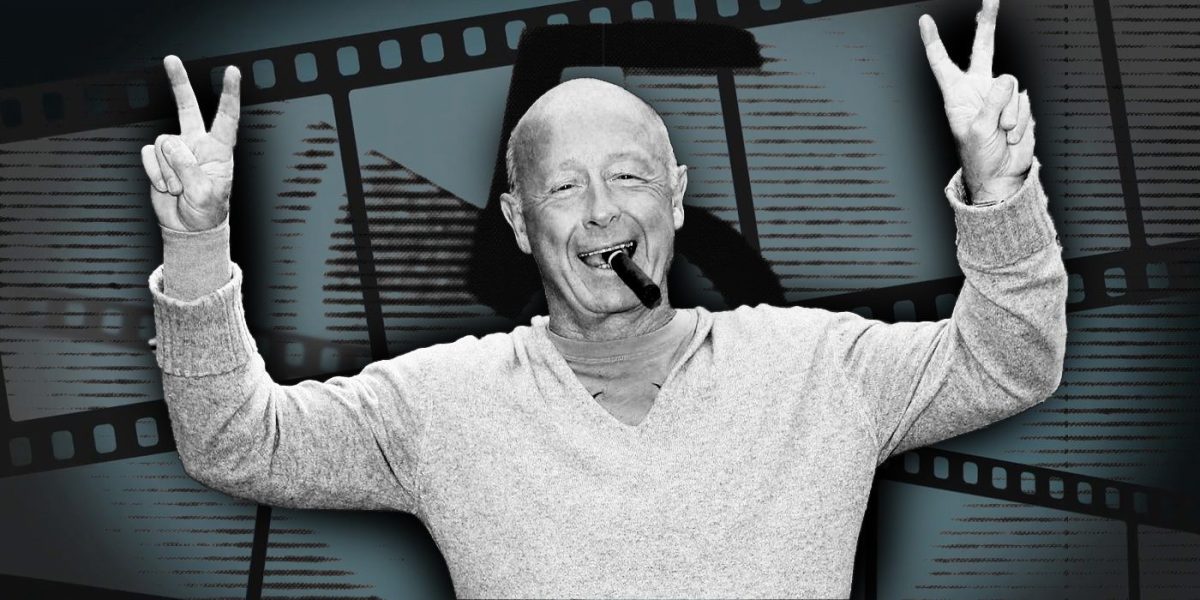
‘Top Gun’s Tony Scott Was a Master of “Amazing Accidents,” Recalls Édgar Ramírez
May 31, 2024
The Big Picture
Collider’s Steve Weintraub sits down with
Emilia Pérez
co-star Edgar Ramírez at Cannes Film Festival.
Ramírez discusses the festival, the weight of awards, working with
Emilia Pérez
director Jacques Audiard, and the “risky” elements of the comedy musical.
Ramírez also recalls his time on the set of
Domino
with
Top Gun
director Tony Scott, what makes great directors, and teases the aesthetic of Eli Roth’s
Borderlands
.
For Édgar Ramírez (Florida Man), returning to Cannes Film Festival with Emilia Pérez was like returning to his roots. “My career basically started here,” he tells Collider’s Steve Weintraub the afternoon after Jacques Audiard’s (Rust and Bone) women-led comedy musical premiered. Ramírez, who plays Gustavo, one of the few men in the film, is still just as excited to be there as he was the first time, back in 2010, with the limited biographic series Carlos.
Emilia Pérez, according to Ramírez, “is a story of a narco that transitions into a woman. A few years later, she comes back to reclaim everything that she’s left behind, including her business and her family.” With a chuckle, he adds, “And all of that in a musical comedy.” Among Sean Baker’s Palme d’Or-winner Anora, Yorgos Lanthimos’ Kinds of Kindness, and Francis Ford Coppola’s Megalopolis, it’s one of this year’s most unpredictable selections, covering serious topics like the self-discovery of transitioning and dealing in the cartel, all in original music numbers. Oh, and its stars swept Cannes 2024 for Best Actress, earning Selena Gomez (Only Murders in the Building), Zoë Saldaña (Avatar: The Way of Water), Adriana Paz (Hilda), and lead Karla Sofía Gascón (Harina) the prestigious title.
During this conversation, Ramírez discusses why he wanted to be on the set of Audiard’s film all the time, whether he was in the scene or not. He also talks about the filmmaker’s “very curious eye,” as well as other notable directors he’s had the opportunity to work with, including Tony Scott on Domino, opposite Keira Knightley and Eli Roth on his upcoming Borderlands adaptation. He shares his thoughts on awards, from the Cannes jury to the Academy, and tons more.
Read the full interview transcript below.
Emilia Perez (2024) Mexico, today. Lawyer Rita receives an unexpected offer. She has to help a feared cartel boss retire from his business and disappear forever by becoming the woman he’s always dreamed of being.Release Date August 28, 2024 Director Jacques Audiard Runtime 130 Minutes Main Genre Crime Writers Thomas Bidegain , Léa Mysius , Jacques Audiard Expand
COLLIDER: You’ve done a lot of roles. If someone has never seen anything you’ve done, what is the first thing you’d like them watching and why?
RAMÍREZ: I feel that maybe the most obvious one would be Carlos because of the length and because in Carlos I have the opportunity to play a character for over almost 30 years, since his early 20s until well into his late 40s, so, like, 20-something years. It was five and a half hours long. I’m thinking maybe it could be Carlos and also Florida Man, this show that I did for Netflix that was also long and allowed the characters to show different shades and to show different moments in their lives, to show them when they’re at the highest peak, when they’re at the lowest, and trying to also resolve these different situations. I think that I would think about those two projects. One is a political thriller with a big human drama at its heart, and the other one is a dark comedy with a big family drama at the heart.
Image via Netflix
What is the most nervous you’ve been the night before the first day of filming and why?
RAMÍREZ: That’s a good question.
I’ve spoken to a million actors, and they all talk about the night before the first day of filming and how you can really be in your head because you’re thinking about everything you wanna bring on that first day and how you might play the character.
RAMÍREZ: But I think that happens with old movies in a way. There’s a level of nervousness. But if I’m talking about the moment, I think it was when I started the night before the four to five weeks, without interruption, of the fighting scenes in Hands of Stone because we were gonna do it in a real stadium in Panama with real Panamanian people watching. By the time we shot the movie there, Hands of Stone, there were no real extras, there were no professional background actors. The people that were invited to watch the movie were just real Panamanian people. They have more than 30 world champions, so these are people that, if you don’t give them a good show, they could boo you, and I was playing their ultimate hero, Roberto Durán. So, I think that I was really, really nervous that I wouldn’t give a good performance in the fighting because I have never boxed before, and then suddenly, I’m trying to portray one of the best boxers in the history of the sport. [Laughs] I was very nervous that night, but it worked out well.
I think that’s a very valid answer and I could never do it.
Why Édgar Ramírez Wanted to Experience Jacques Audiard’s Universe in ‘Emilia Pérez’
Jumping into why I get to talk to you. Talk a little bit about what Emilia is about and what drew you to this project.
RAMÍREZ: Well, what the movie is about, more or less, is a story of a narco that transitions into a woman. A few years later, she comes back to reclaim everything that she’s left behind, including her business and her family, and all of that in a musical comedy. So that’s pretty much what the movie is about in a nutshell. What drew me to the project was basically Jacques Audiard. I’ve been a huge fan of his work, as the rest of the world, for many, many years. I think that he’s a director with a very strong vision and also with a very curious eye. His movies, each one of them are so unique. One movie doesn’t have anything to do with the other. He’s always trying to look for new stories and new realities to explore, and that, to me, was an amazing opportunity to be part of his universe.
I saw it this morning.
RAMÍREZ: I haven’t seen it.
It’s fantastic.
RAMÍREZ: I’m so happy to hear that.
It’s just excellent filmmaking. One of the things about it, and I’m not sure if you saw it when you were on set, was just how many background actors he had in scenes for some of the musical numbers and how big the scenes were. The music was so good. Were you there for any of that, or were you just there for your scenes?
RAMÍREZ: No, no, no. We were all in Paris shooting the movie so there were some scenes that my character was not in because my character is the only male character. It’s a women’s film, but I didn’t wanna miss it so I went. I saw some of those scenes, some of those musical numbers with the big amount of background actors and dancers. I didn’t wanna miss it. I wanted to experience that. I went to many of those rehearsals and also when they were shooting.
Why ‘Emilia Pérez’ Is Such a “Risky Movie”
Image via Cannes Film Festival
One of the things that also struck me is that it’s such a unique film. It’s hard to make a musical but then to make a musical comedy and insert this subject matter into this film? I’m just so impressed that this was able to be made.
RAMÍREZ: It’s a very risky movie in the sense that many different elements are being mixed, and the fact that it also all happens in Mexico, and it’s a very Mexican story told by a French director in a very peculiar way, but that’s what cinema is, right? That’s what good cinema and good art is. It’s about exercising that curiosity and that compassion and taking a look at different realities with an unprejudiced eye, which is something that Jacques has done for many, many years. So, if someone should be trusted with an experiment like that, it’s someone like Jacques Audiard.
This is my first year attending Cannes Film Festival, but one of the things that struck me about the films that I’ve seen thus far is that so many great directors are expressing their unique vision on screen, and it’s just this great explosion of art. Can you talk about being at Cannes, what it means, and the types of films that they love to champion here?
RAMÍREZ: There’s no other country in the world that defends and protects cinema as a form of art and cultural expression as France, and, of course, the Cannes Film Festival is at the very center of this defense and protection of cinema. What I love about the selection of the movies is that, because I had the privilege to be on the jury two years ago, it’s just fascinating to see movies that are so different from each other. The level of diversity and the level of uniqueness of all these movies coming from all over the world. You walk on the Croisette, and you see this is the true party celebration of cinema from all over the world. I mean, you have the best of Hollywood, the most interesting, the weirdest cinema from all over the world just getting together here every year, and it is fascinating. I love it. I always leave so excited.
My career basically started here. I’m very grateful to this festival because my career was made here. Basically, it’s a product of this festival. I had the opportunity to work with people like Jacques Audiard because Carlos was received and celebrated in such a beautiful way here years ago. What I’m trying to say is that it never gets old. It’s like I come here, and I’m just as excited as the first time I came.
I wanted to ask you about being on the jury. What really surprised you about that experience that you weren’t expecting going in?
RAMÍREZ: How unfair giving awards is — unfair as a process, not unfair politically, but as a process for the jury. Because you’re talking about 21 films that themselves are amazing, all of them, so it’s very hard to decide which movie is better than the other. So, in the end, what I learned that I didn’t expect is that awards given are not about rendering one movie better than the other. It’s just that there’s something particular that movie caused in you, something that it provoked in you, something that it elicited in you, and then you wanna give it, like, a little, “Oh, look at this.” But not because by doing that you are taking away from the other movies in the selection, and that’s what happens in a festival like this. It’s not about, “This movie is better than the other.” It’s just that this movie moved me and touched me in a certain way, and all the people agreed on that, which is very difficult. The agreement among the jurors is not easy. It’s not easy because then you have to debate, and some people are moved by some other movies because we all have different tastes and we also appreciate different things. It’s also very nice when everyone also agrees on something, you know.
I was talking to this friend of mine the other day, and it really allowed me to understand that definitely there’s no progression in art, meaning that you don’t wake up in the morning saying, “Okay, my movie today is gonna be better than the one before,” because if it worked that way, then Don Quixote would have been written 1,000 times over and Hamlet would have been written 2,000 times over it. There’s no progression in art. It’s not a measurable craft. You cannot expect a creator of any kind to say, “Oh, his last movie was not as good as the last one.” Of course it wasn’t. It’s a different exploration. Sometimes there’s this expectation, especially with great filmmakers or even with actors, with any type of creator, that their last creation should be better, as if it’s almost like an accumulative thing, and it doesn’t work that way. It’s a body of work.
Related The 10 Best Cannes Film Festival Lineups, Ranked How will 2024 rank among the best lineups?
Sure, but it’s also the same, I think, with every art form, whether it be books or paintings.
RAMÍREZ: Exactly. All of it. Anything.
As I’ve gotten older, I firmly believe that when you talk about, for example, the Academy Awards, that winning is just — I don’t want to say it’s a popularity contest, but there’s a lot of like, “Do you shake hands?” I think the nomination is everything.
RAMÍREZ: I totally agree with you. The nomination is basically like, “These are the movies that have touched most hearts and intellects and curiosities and all of that, and have elicited all these emotions in people.” And then, from then on, the awards depend on so many other things.
In 10 years from now, when you talk about, “What were the best performances of 2024,” it’s the things that were nominated. Those are the ones you want to go back and say, “Well, why was it nominated?” Not the winner. Anyway, that’s a whole other thing.
The Filmmaking Technique Ridley Scott and Tony Scott Shared
Image via New Line Cinema
Before I run out of time with you, I’m a huge Tony Scott fan, and you got to work with Tony Scott.
RAMÍREZ: Yeah, he was my godfather. He gave me my first break, my first international movie.
Can you reminisce a little bit about working with Tony and what it was like on set compared to other directors you’ve worked with?
RAMÍREZ: You know what? It was very similar to this guy, to Audiard, in the sense that they are very free, and they know exactly what they want, and that’s why they’re so open. They’re so open to different ideas and different ways of seeing it because they create context, right? There is a very specific context where things should happen, what is gonna happen, and how it’s gonna happen. Once the environment and the world are built, then they let all the elements play and kind of overlap, play, and crash. It’s like they shoot amazing accidents in it.
Tony was like that. Very energetic. He was very free. I remember my character Choco, he was meeting with Keira Knightley’s character, and we’re in the Winnebago — that’s where we were shooting the reality show in the movie — and then I remember that we had, like, four cameras inside the vehicle, and I foolishly came to Tony, and I said, “Tony, in this setup, are you on me or is it just on Keira?” He said, “Dude, you’re always on.” And that was amazing because he needs to shoot everything so that he could combine it as he wished afterward. So he was like, “You’re always on in my movies. You’re always on because that’s four cameras.” So, of course, he was shooting everything.
It’s funny because Ridley Scott, like on Gladiator and his recent things, he’ll shoot with eight cameras and everyone talks about it.
RAMÍREZ: Yeah, it’s a family trait.
It’s amazing because they’ll shoot the rehearsal, and people have told me, with Ridley, you might have one or two takes, that’s it, so you better fucking nail it.
RAMÍREZ: And when you see Domino at the end, when you see the final cut, a lot of this falling in love with Domino, with Keira Knightley’s character, on behalf of my character, Choco, is all told from stolen looks. It’s like I’m looking at her, and then the minute she realized that I’m looking at her, I act all tough. All of that story, if you look at it editing-wise, is all stolen looks. It’s not like it’s written on the script, like, “Choco is looking at Domino, falling in love.” No, that was not written. It was like, that’s something that Tony would tell me, and then he would be stealing my looks to her all the time.
And that’s the reason he had four cameras going.
RAMÍREZ: Exactly.
Image via New Line Cinema
If you do theater, you are crafting every aspect of your performance and the audience is getting what you are putting out there, but with film and television, it’s up to the editor and director who’s crafting your performance. What is it like for you to watch something for the first time? Can you watch yourself on screen, or do you just see, “Oh my god, they used that tape?”
RAMÍREZ: I’ve been very lucky to have worked with great directors that I really trust. And you’re right, the reality is that cinema is a collective medium. It’s a collaborative medium. In the end, the expectation is that the movie is the better version, is that you as an actor, the director, the editor, we all go into a movie having a version of the movie in our heads, expecting the movie in a certain way. The expectation is for the final version to become even better than the one that you had walking in, and that is an alchemy. That is something that sometimes doesn’t work, but sometimes it does, and it is amazing. It’s great to work with directors who have a very clear idea of how they edit their movies in their heads because, in the end, it’s all about the editing. It’s all about that selection of the film, of the scenes that are gonna end up in the final cut. So it’s very important for directors to keep that in mind, to have a very specific idea of how they cut the movie in their heads.
Eli Roth’s ‘Borderlands’ Is “Like the Haze After a Hangover”
Yeah, that sounds about right.
You’re playing Atlas in Borderlands. What can you tease about? I believe he’s the villain.
RAMÍREZ: Yeah, it’s so funny. It’s a good movie. It’s very whimsical, very gonzo. That movie is kind of like a hangover. It’s like the haze after a hangover because that’s kind of the spirit of the game. Eli Roth was very clear in creating this almost Italian ‘70s, science fiction feel to the film, so I’m very excited about it.
Have you seen any of the footage?
RAMÍREZ: Yeah, a little bit. Not much but a little bit, and it’s crazy. I’m very excited. We had a lot of fun. There’s something really outrageous about it, just as the spirit of the game.
If you’re looking for even more on Emilia Pérez, check out our Cannes interview with director Jacques Audiard.
Publisher: Source link
Jerry Bruckheimer Explains How an F1 Legend Added a Storyline to ‘F1: The Movie’
Summary Collider's Michael Zimmermann talks with producer Jerry Bruckheimer for F1: The Movie. Bruckheimer discusses how having access to real F1 locations was crucial for a realistic movie experience and how Formula One driver Lewis Hamilton directly influenced the film…
Aug 18, 2025
Interview: Kate Beecroft on East of Wall
East of all Kate Beecroft found East of Wall’s main character—now one of her closest friends—entirely by chance. She’s retold their origin story in so many interviews that it’s worth quoting her first iteration from the press kit: “Taking a…
Aug 17, 2025
“It Was Always Meant To Be a Three-Season Show”
Summary Smoke creator Dennis Lehane sits down with Collider's Tania Hussain following a blockbuster finale. Lehane discusses the process that went into that major final twist. The future of Smoke is clear in Lehane's mind, but what will the outcome…
Aug 16, 2025
“With a Director, I Ask Myself, Is This a Person I Would Like to Travel With?”: Realm of Satan Director Scott Cummings Interviews D.P. Gerard Kerkletz
Realm of Satan In 2019, I began production on my debut feature Realm of Satan, only for the world to shut down as COVID-19 brought filming to a halt after just a few days. It wasn’t until 2022 that we…
Aug 15, 2025
